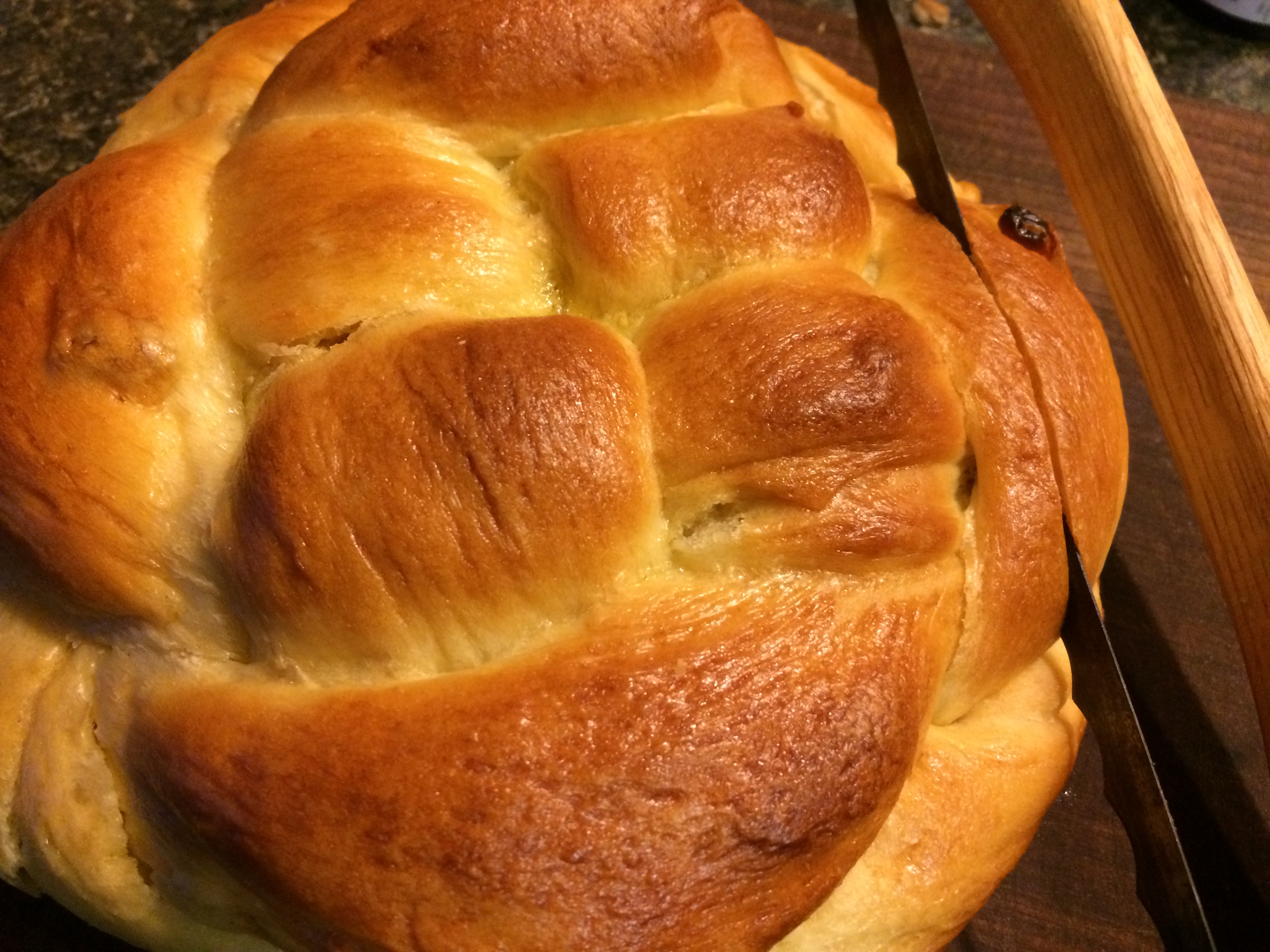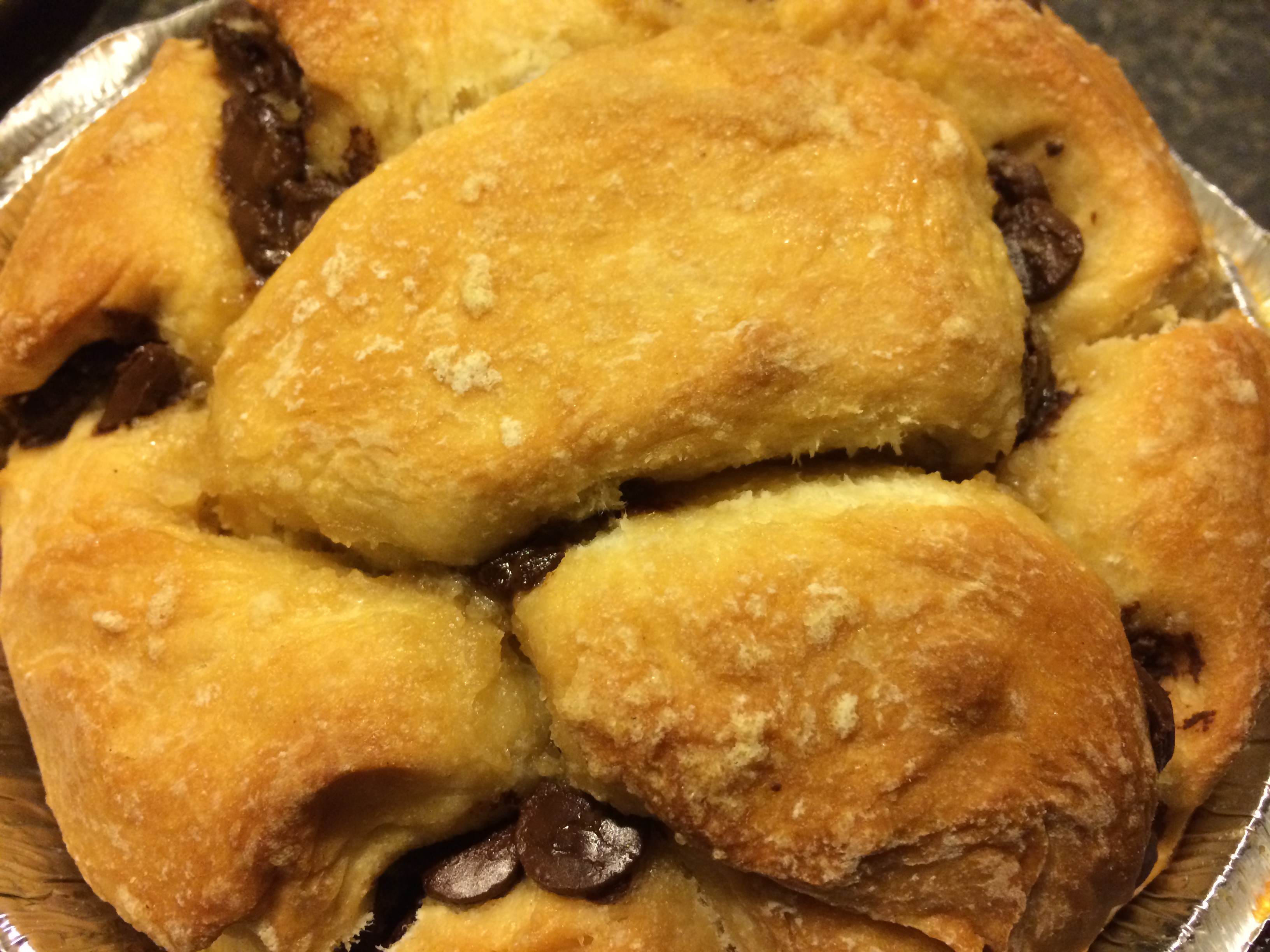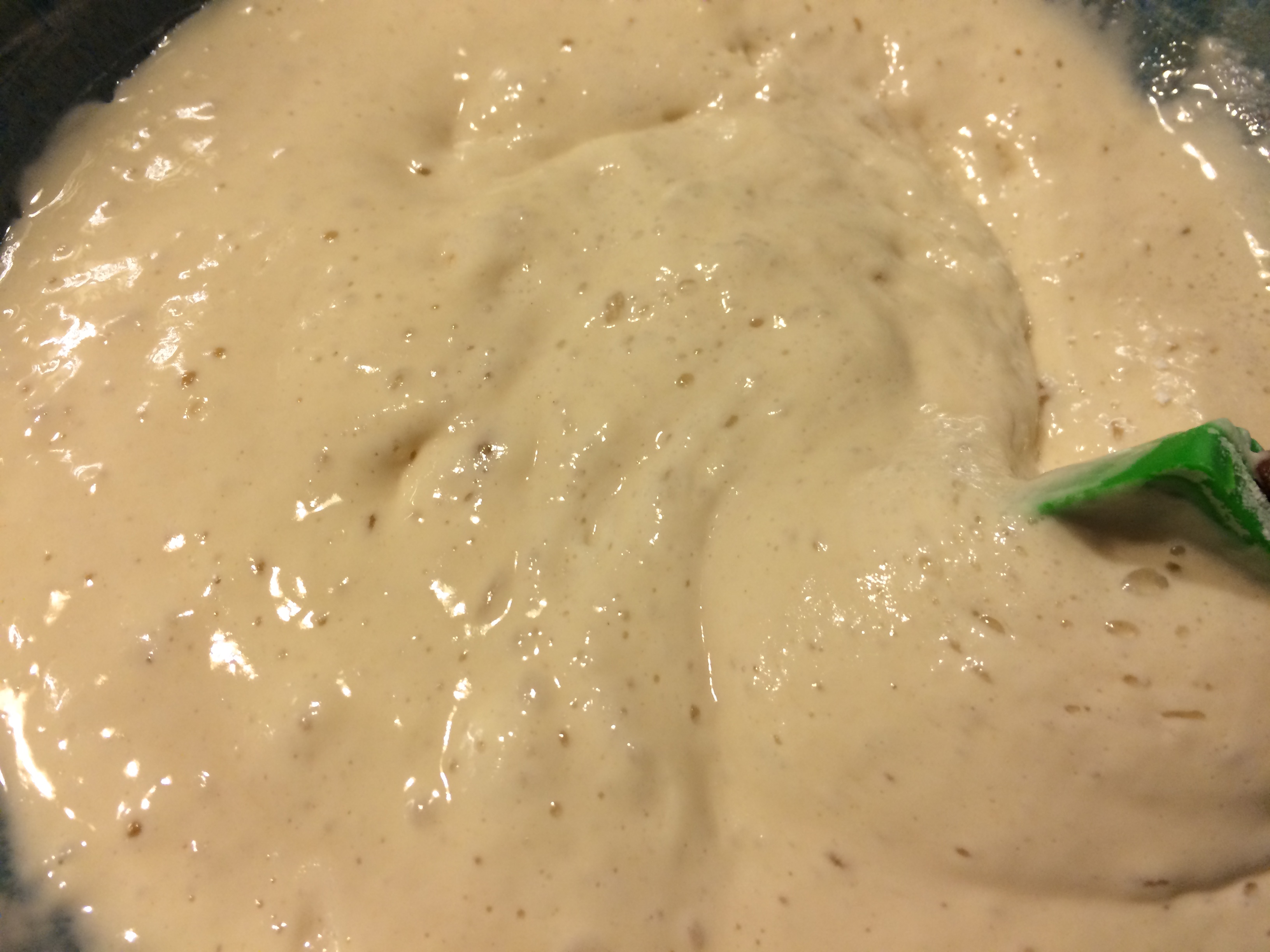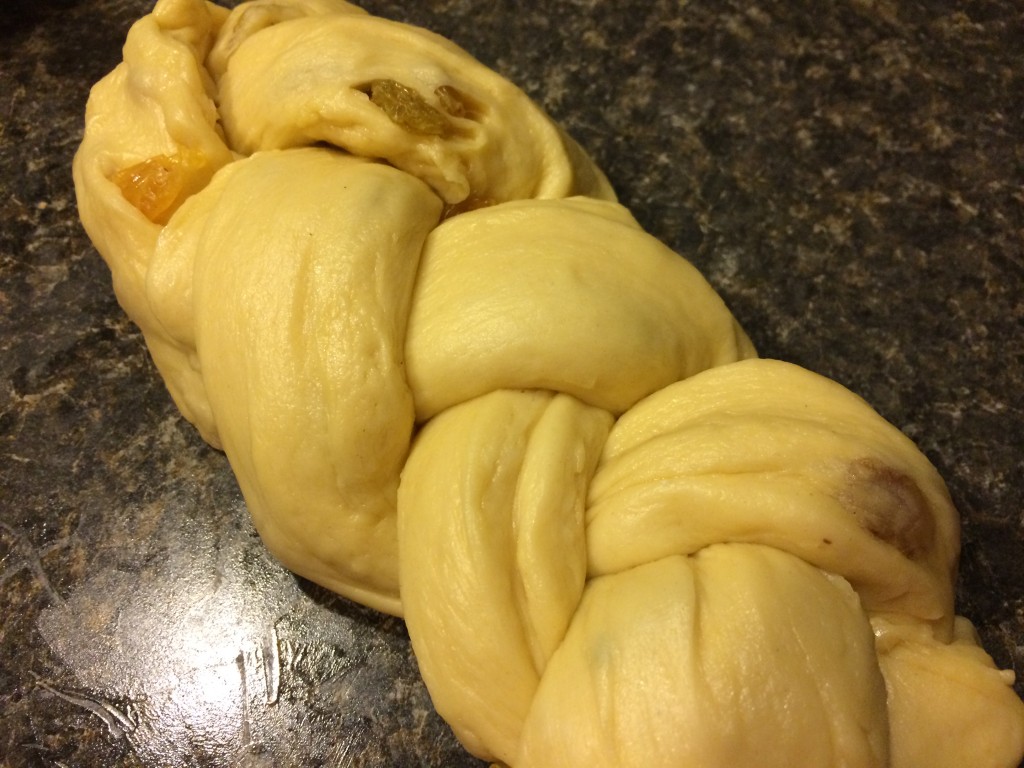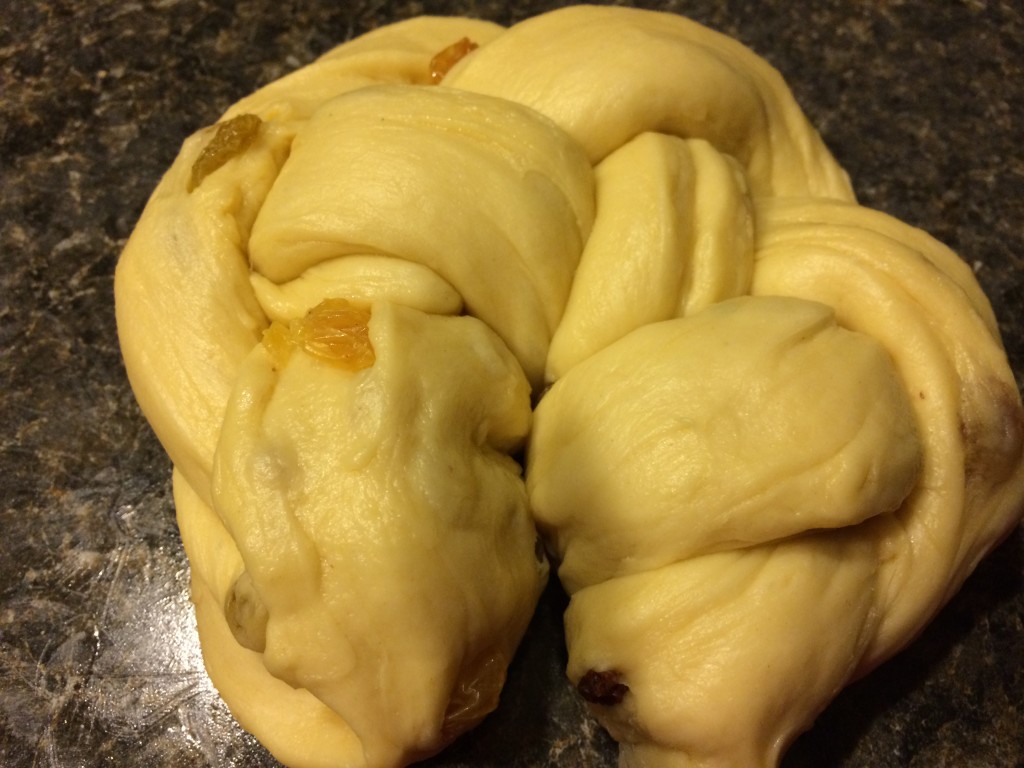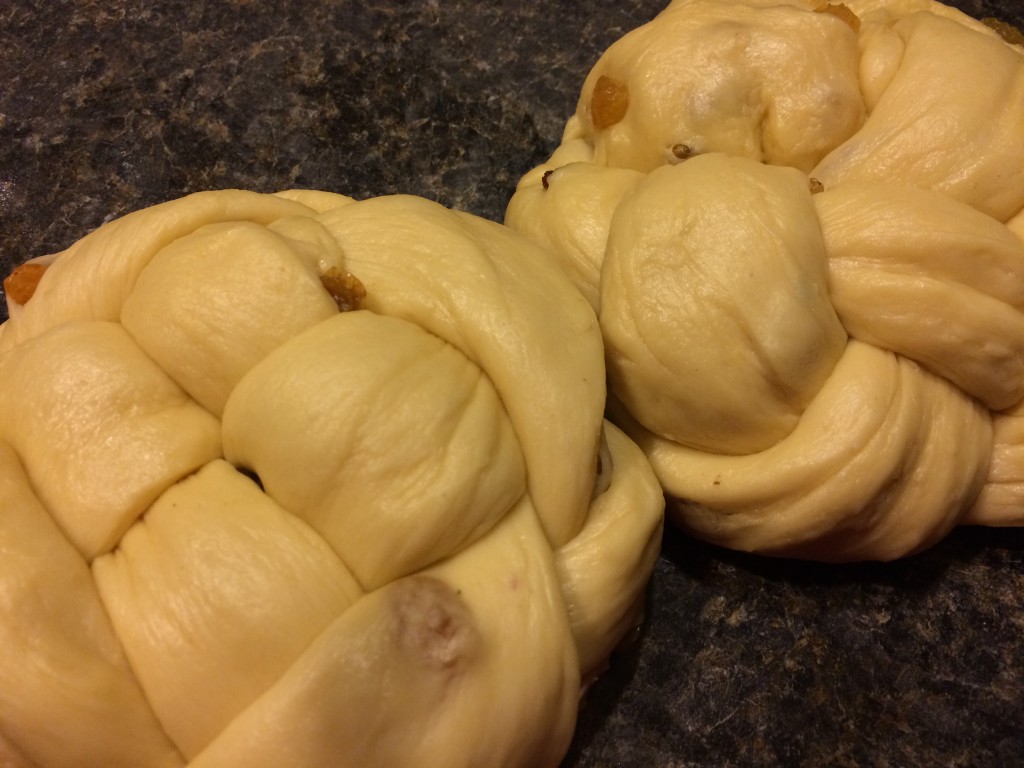In my book, challah has turned out to be the Audrey Hepburn of bread: sophisticated simplicity with an elegance all of its own.
Given that challah has been around for thousands of years, I hope my experimentation with it this week did it justice! I didn’t have a peek at any of the sacred family recipes that have likely been passed down generation after generation so I was left to fend for myself in an arena that was brand new to me!
After being introduced to challah in the Loaves of Love program, I just couldn’t help getting in on the act. Challah is a bread with a history. How was I supposed to resist?
I browsed ingredient lists for days. Not only did I find a huge number of recipes but I stumbled upon a wide range of opinions about what makes the perfect challah. Some staunch critics felt that traditional challah recipes are not to be fooled with while others advocated tossing in everything from cinnamon to nuts to chocolate chips!
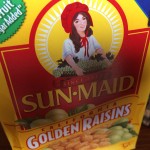 In the end, I wanted my challah to be fairly simple, slightly sweet, and include a little something out of my norm. Golden raisins fit the bill. I rarely have them in my shopping cart and most critics of challah found them a generally acceptable add-in!
In the end, I wanted my challah to be fairly simple, slightly sweet, and include a little something out of my norm. Golden raisins fit the bill. I rarely have them in my shopping cart and most critics of challah found them a generally acceptable add-in!
Having said that, I mixed, matched, and crossed recipes to such an extreme that I’m not sure I even ended up with a “true” challah. I opted for butter rather than oil and honey rather than sugar. I adjusted eggs to suit my taste because all the recipes varied anyway! I used bread flour rather than regular (though I suspect you could easily use all purpose for this, too.) I rarely proof my yeast but this time I did because that’s the way it seems it was done through this bread’s history.
Regardless of the debate, my substitutions, and my additions, this bread is a winner all the way around. It’s easy to make and it’s delicious. It begs a creative spirit to twist, braid, or coil it into shape. In my book that spells fun and makes it the perfect invitation for kids to come into the kitchen and help!
I hope this fall finds you gathering around the bread bowl sharing stories and recipes. As always please feel free to share this recipe, pipe in below about your own experiences, and visit me on Facebook,
Mary
Ancient-bread-new-found-love Challah
2 1/4 tsp yeast (one package)
3/4 cup warm water (hot from the tap works)
3 3/4 cups bread flour
3 eggs, divided
1/2 cup of melted butter, slightly cool
1 1/2 tsp salt
1/3 cup plus 1 T honey, divided
1/2 cup golden raisins
In a large bowl, mix the yeast, warm water, and 1 cup of the flour. Allow to proof for about 15 minutes.
Meanwhile, melt the butter and allow it to cool slightly. Add it to the proofed yeast along with 2 of the eggs, the salt, and 1/3 cup of honey. Mix well to incorporate all ingredients.
Add remaining flour. Knead. Add enough flour so that it’s not sticky (Post-It note tacky is ok!) Don’t over-flour the dough. It should be soft and pliable.
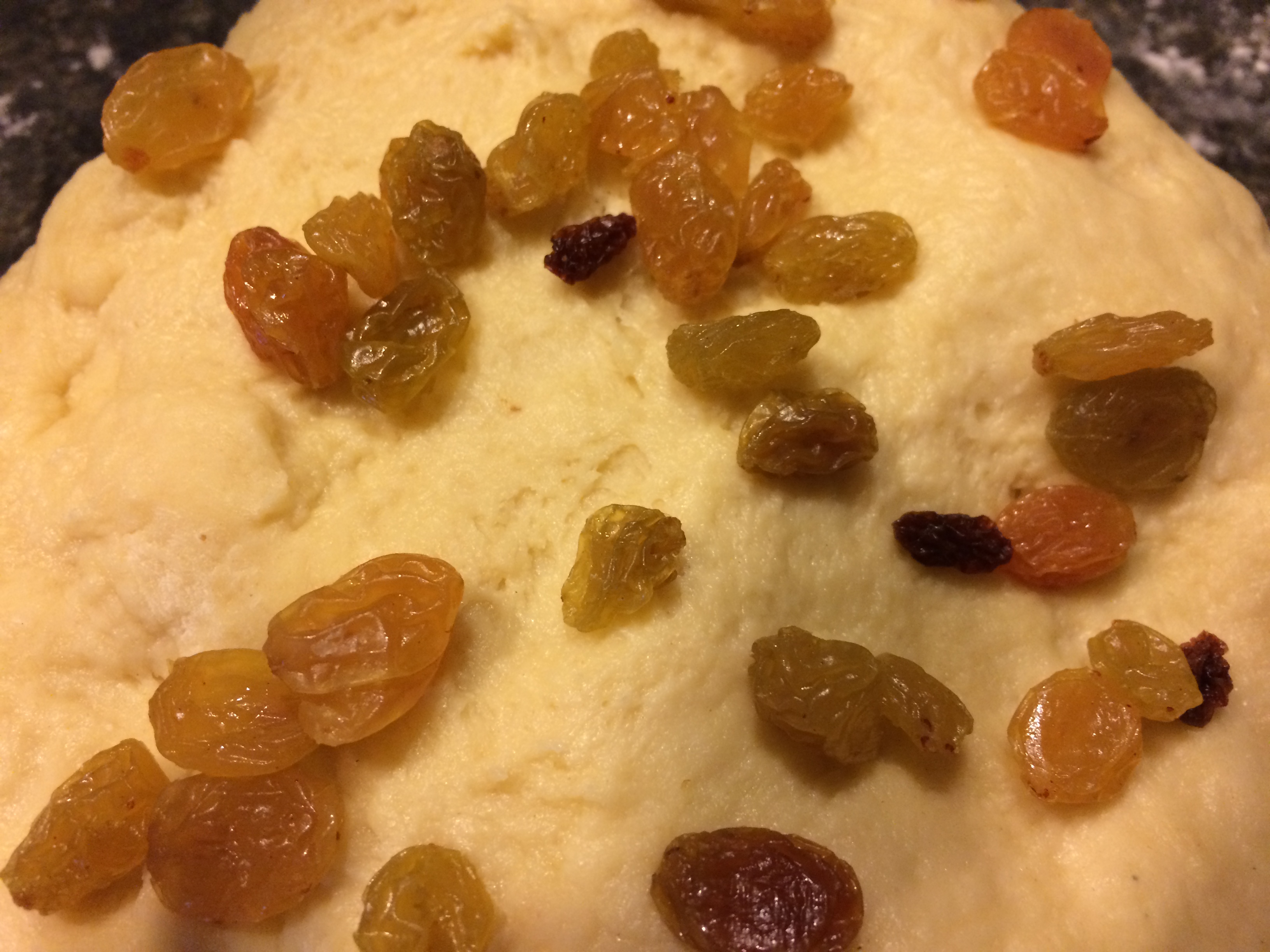 After kneading for about 5 minutes, add in the golden raisins. Knead 5 minutes longer.
After kneading for about 5 minutes, add in the golden raisins. Knead 5 minutes longer.
 Cover and allow to rest about 90 minutes or until doubled in size.
Cover and allow to rest about 90 minutes or until doubled in size.
At this point, I divided my dough in half because I wanted to experiment with braiding one loaf…
and weaving the other.
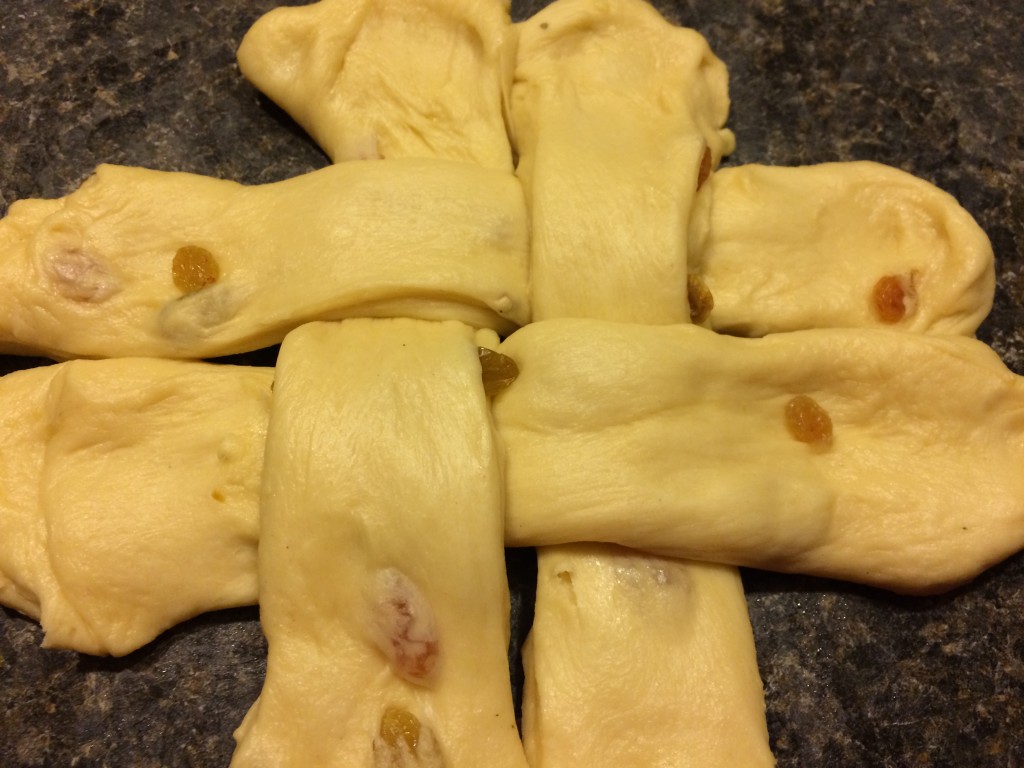
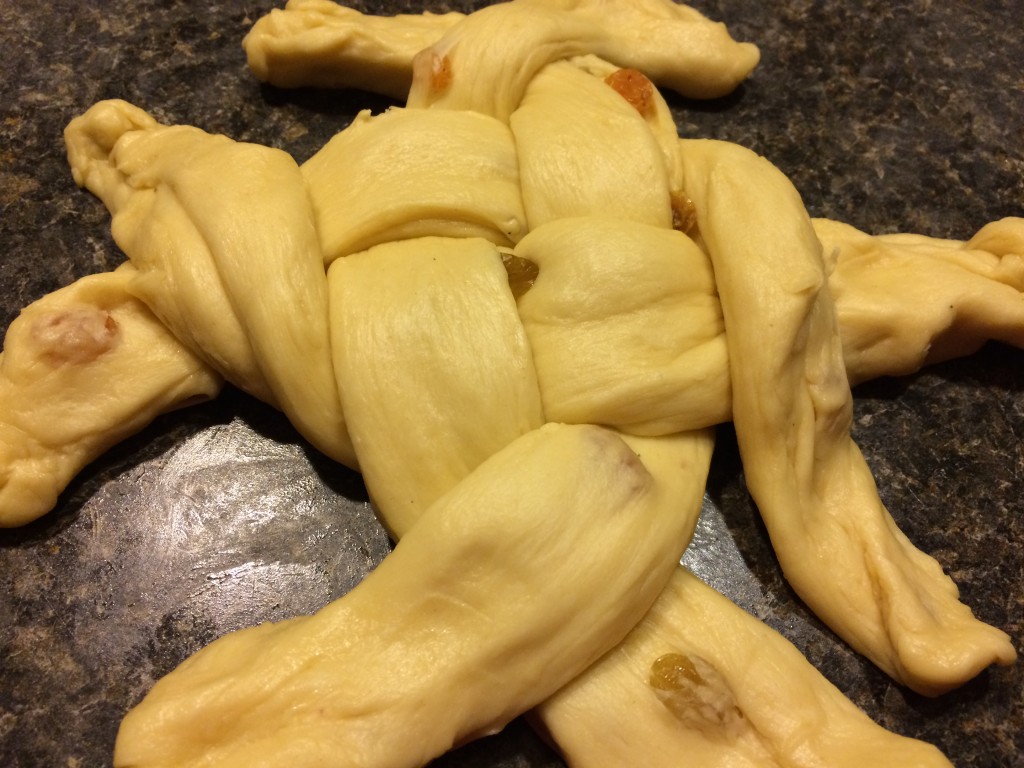
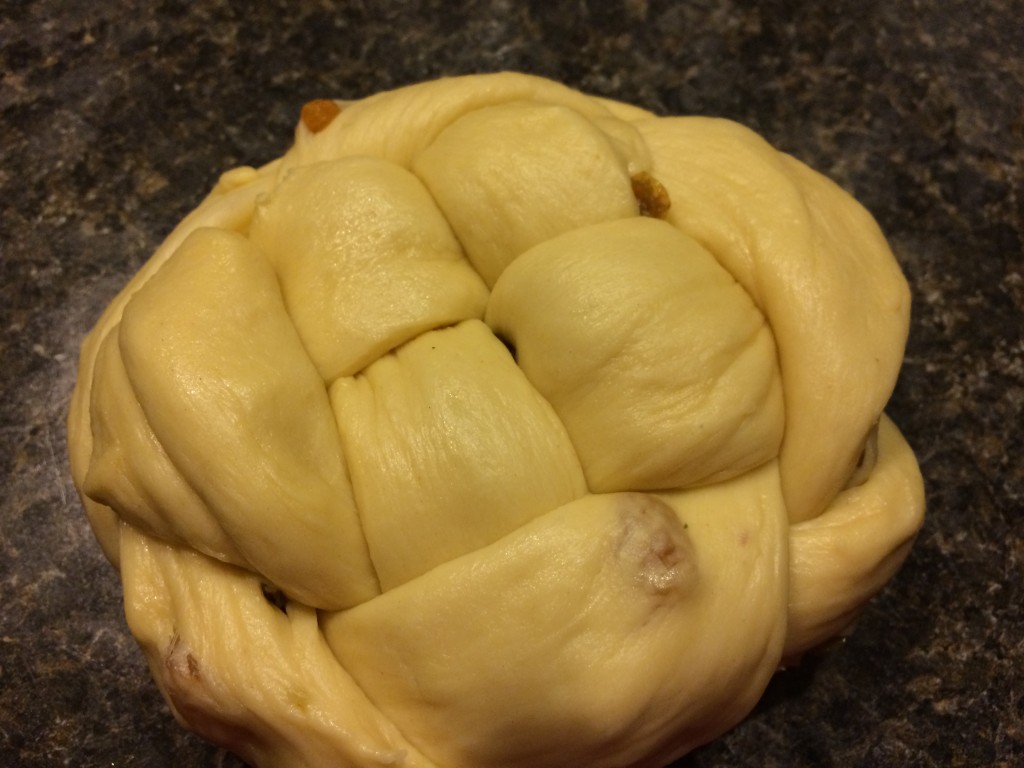 You could do one large loaf if you wanted. (There are an incredible number of ways to braid, weave, or twist challah into shape. Don’t be afraid to explore and experiment!!)
You could do one large loaf if you wanted. (There are an incredible number of ways to braid, weave, or twist challah into shape. Don’t be afraid to explore and experiment!!)
Give your shaped challah a second rest to double again in bulk.
Preheat oven to 350 degrees. Lightly beat the 3rd egg with the remaining tablespoon of honey. Brush on loaves and bake for 25-35 minutes. Adjust cooking time if you opted to create one larger loaf. Loaves should be golden brown and pass the thump test when you tap the bottom. If they seem to get too brown too quickly, tent gently with foil to finish baking.
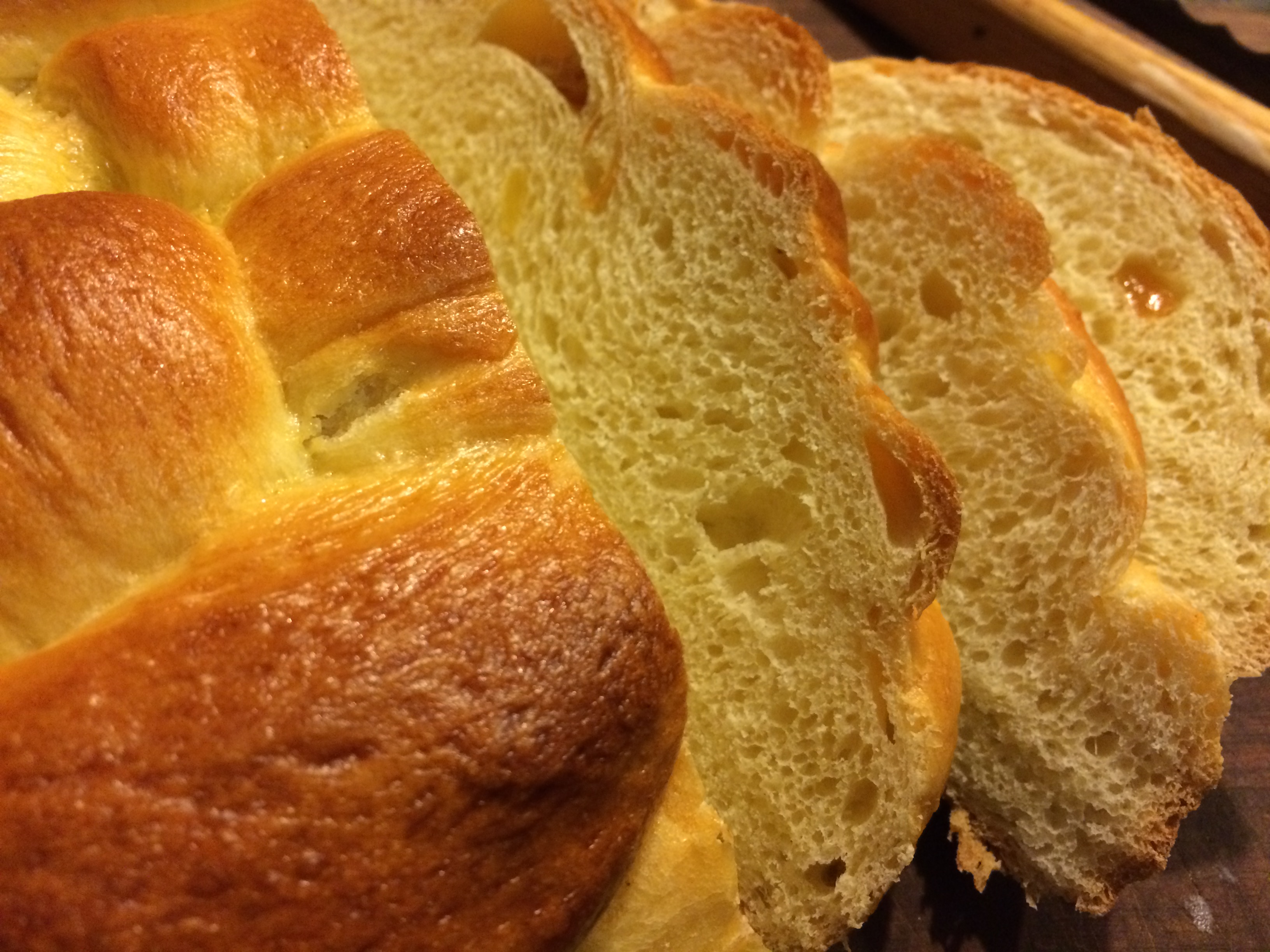 Cool before slicing. If there’s any left by morning, try some challah french toast! We added some lightly toasted pecans that had been glazed in a little maple syrup to ours!
Cool before slicing. If there’s any left by morning, try some challah french toast! We added some lightly toasted pecans that had been glazed in a little maple syrup to ours!
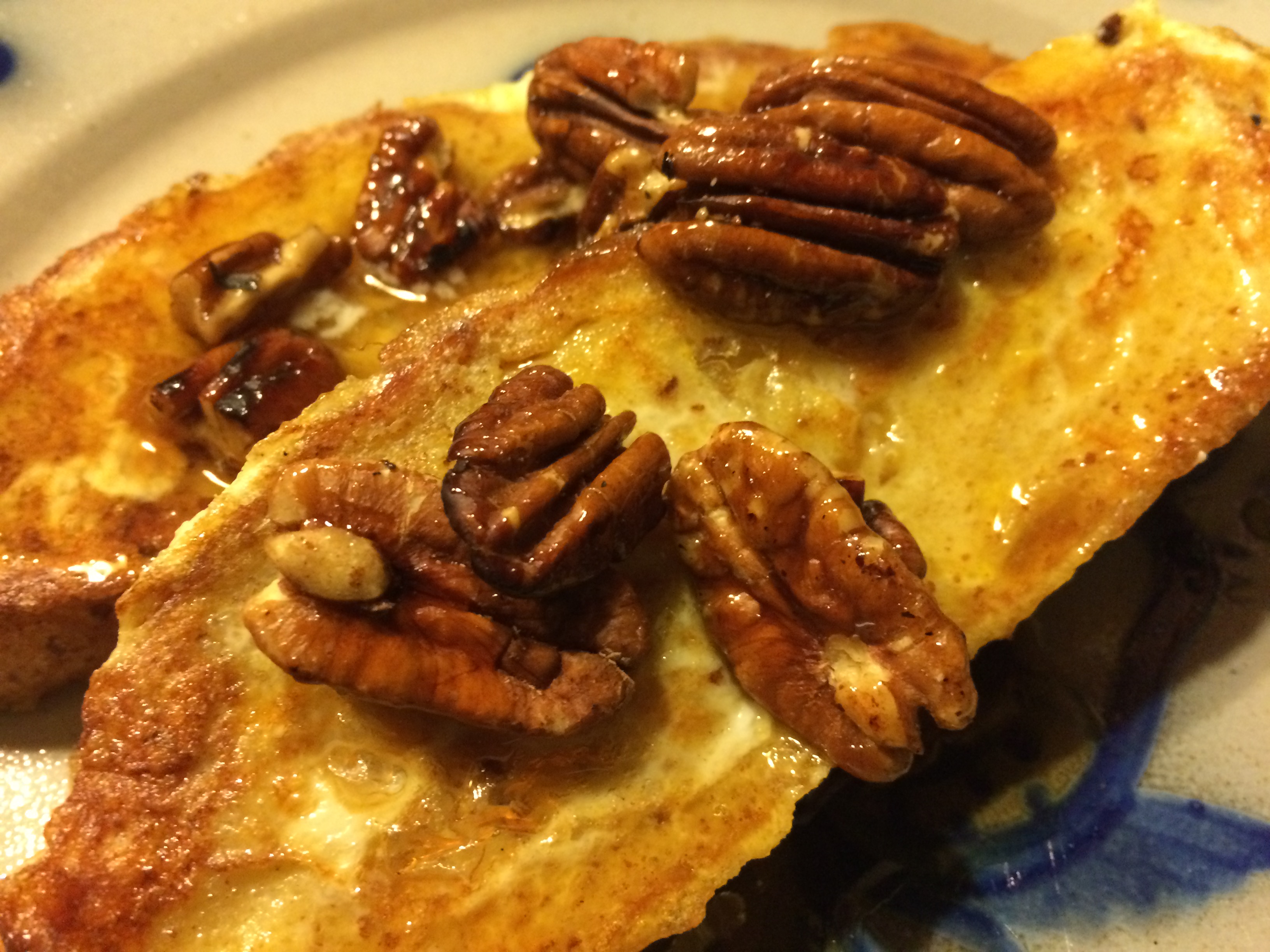 Some other favorite recipes you might like to try:
Some other favorite recipes you might like to try:
No-good-reason-not-to-make-it English Muffin Bread
Hearty-Hold-You-Over-In-Winter Bread
